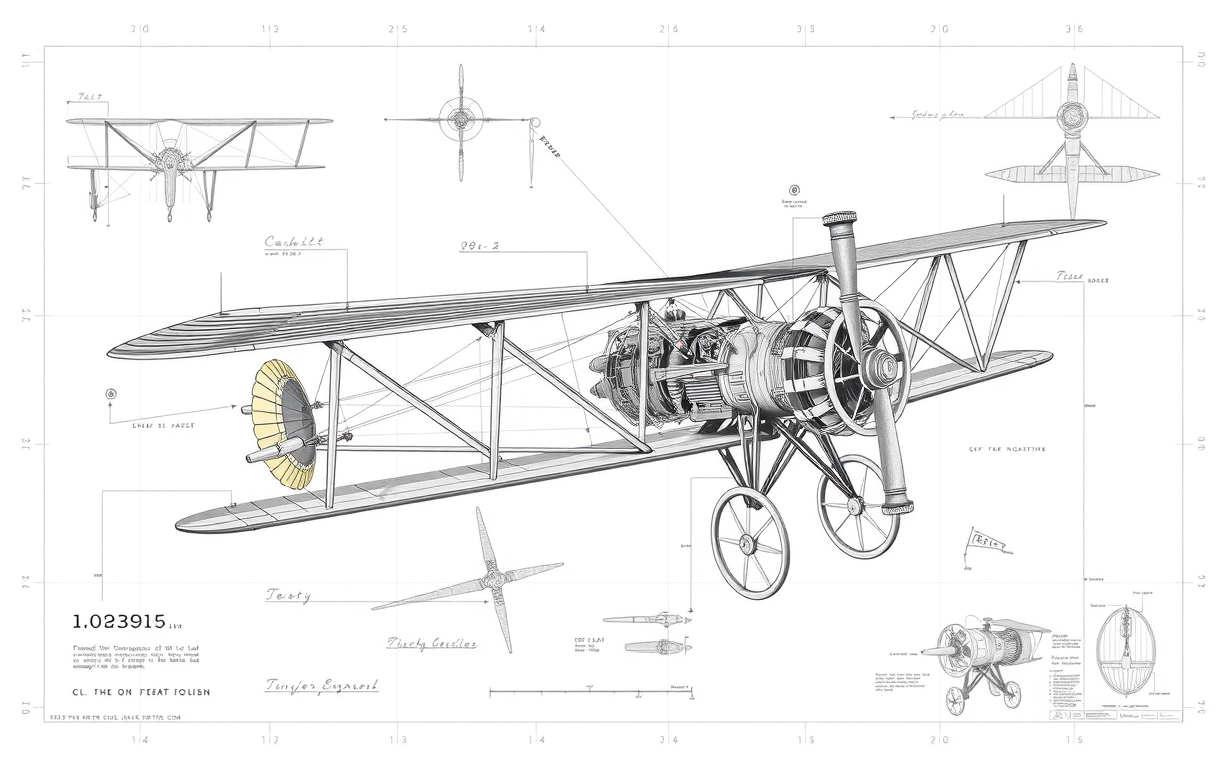Ah, Sunday afternoons in Maine. There’s something about the lazy light filtering through these pine trees that makes a person contemplative. Or maybe it’s just the third glass of Chardonnay speaking—no judgment, Diary, it’s been a long week. Anyway, today, my mind’s been wandering down a rather ridiculous (or brilliant?) path:
What if the Wright brothers—or their steam-loving predecessors—had decided the skies deserved the steam engine’s debut, not the rails?
Imagine it, Diary. Instead of clunky locomotives chugging across the landscape, belching soot, we might’ve had clunky aeroplanes chugging through the skies, their great brass boilers steaming away like airborne kettles. Ludicrous, I know, but stay with me. History is built on “what ifs,” and I’m rather fond of this one.
Here’s the thing: steam engines are the stuff of grounded grit—rails, factories, maybe the odd riverboat. But what if some mad tinkerer in the 18th century had looked at the skies and thought, “You know what? I’ll stick a propeller on this glorified teapot and see what happens.” It’s not impossible! Early steam engines weren’t just about raw power; they were about innovation, about pushing against the limits of what we thought machines could do. So why not push upward?
I picture this fantastical contraption—a bit like a hot air balloon, maybe, with gears clanking and steam hissing, propellers whirring furiously as it lumbers into the air. Oh, the chaos it would’ve caused! Imagine the first steam-powered flight over London in the 1750s. Ladies in bonnets gawking, horses bolting, and chimney sweeps shaking their fists as soot rained down on their freshly cleaned rooftops. Glorious.
Of course, the practicalities would’ve been absurd. Steam engines were heavier than my Aunt Edith’s fruitcake (bless her, she means well), and they guzzled coal like my grad students guzzle coffee. To keep one aloft would’ve required either magic or a very optimistic disregard for physics. Still, what a sight it would’ve been—a great mechanical bird, puffing along against the backdrop of a golden sunset, while engineers scurried around the landing site, cursing the latest busted boiler.
But here’s the thing, Diary: if someone had managed it, the course of history might’ve shifted entirely. Aviation wouldn’t have come in the sleek, elegant form we know today. It would’ve been gritty and industrial, all steam and soot and roaring pistons. Maybe we’d have gotten skyscrapers earlier, too, with docking stations for steam-powered dirigibles by 1850. Railroads might’ve taken a back seat, delayed while we all scrambled to conquer the skies with these fantastic, clumsy machines.
And war—oh, war. What would Napoleon have done with a fleet of steam-powered bombers in 1805? Terrifying thought, isn’t it? One moment you’re sipping your tea in Vienna, and the next, a giant steaming kettle is raining cannonballs from above. “Quelle horreur,” as they’d say.
But I digress. The Chardonnay’s gone warm, and the sun’s dipped behind the trees. Maybe it’s all nonsense, Diary—just a historian with a head full of steam and a soft spot for absurdities. Still, it’s fun to think about, isn’t it? How history could’ve gone careening off in an entirely different direction, all because someone looked at the sky and thought, Why not?
Ah, well. Time for another glass.
Yours irreverently,
Professor Henry Fitzwilliam Jones, PhD
